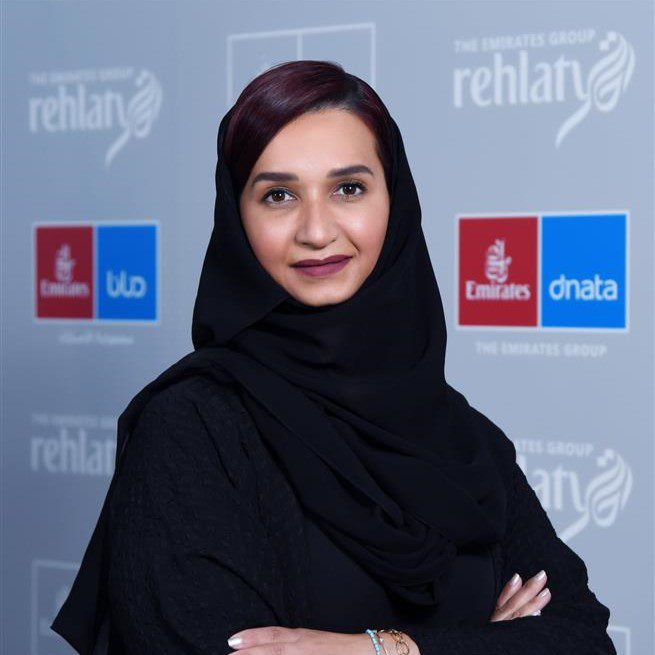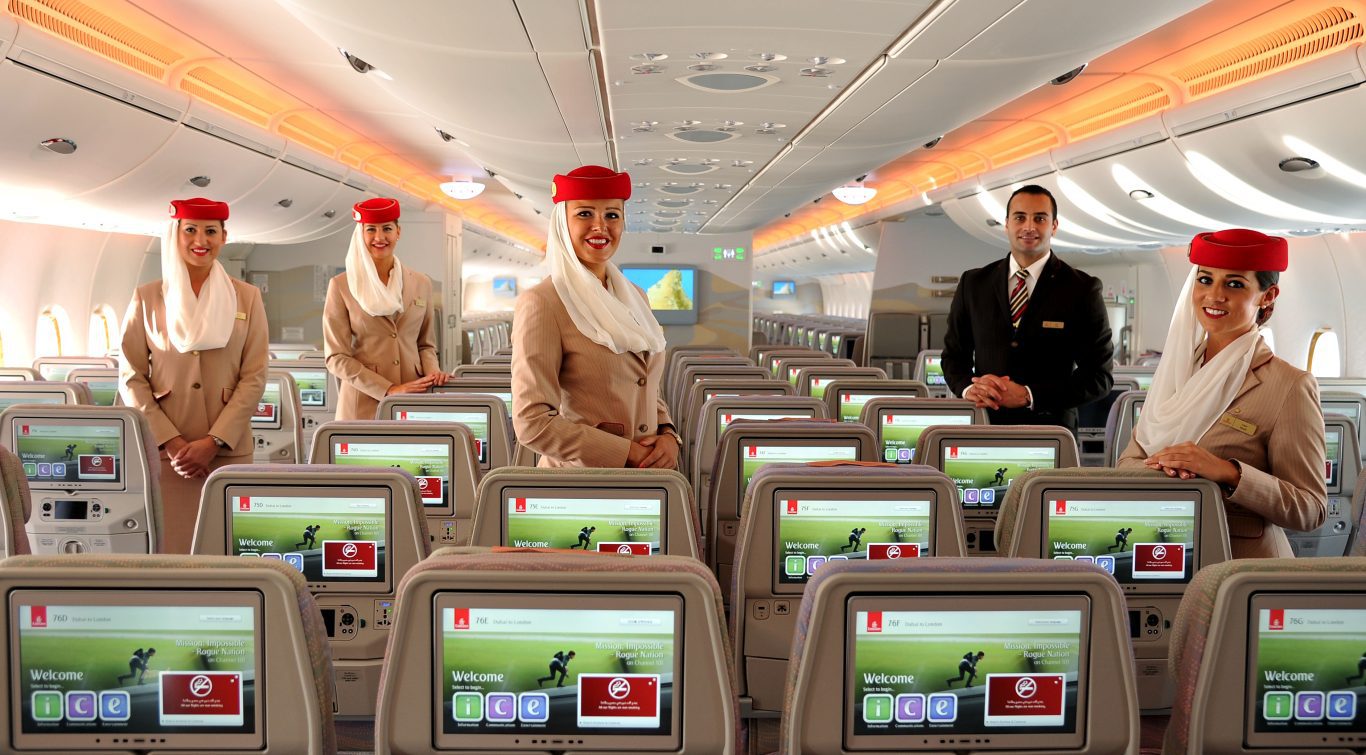Emirates: HR tech enabled a post-pandemic bounce back
HireVue’s platform has saved the aviation group almost $500,000.
Why You Should Care
The aviation sector has been deeply impacted by COVID-19 and the 'Great Resignation'.
UAE flag carrier Emirates handled the uncertainty well; it was ranked by employees as the 100th best employer in the world.
Find out how HireVue's hiring platform contributed to Emirates' recovery in this exclusive interview.
HR leaders, don’t miss out: Join us in Las Vegas for free as a VIP guest at UNLEASH America.
In October 2022, Forbes published its list of the world’s best employers.
The ranking is based on a survey of 150,000 workers from across the world. They are asked their insights into which companies stand out in areas like corporate social responsibility, talent development and gender equality, as well as whether they would recommend their employer to friends and family.
The 2022 list features 800 companies – and sitting at position 100 is aviation giant the Emirates Group.
It is comprised of two business units: Emirates, the largest airline in the Middle East and one of two flag carriers for the United Arab Emirates (UAE), and the Dubai National Air Travel Agency (dnata).
This is Emirates first time in the Forbes top employers list, and it is the third highest ranked employer in the transportation and logistics sector (Delta Air Lines sits at 6th, while Southwest Airlines was 9th).
The UAE flag carrier beat out competitors like American Airlines (115), Air Canada (162), Singapore Airlines (215), Deutsche Lufthansa (236) and Air France-KLM (263) to be in the top 100.
This begs that question, what makes Emirates a great employer. To find out more, UNLEASH sat down with Manal Al Soori, HR vice-president of Emiratization and people experience for the Emirates Group.
Emirates on being an employer of choice
For the aviation company, being a people-focused organization, which is passionate about its values of safety, integrity, trust and collaboration helps to set the organization apart.
Other pieces of the puzzle are being a diverse organization – the Emirates Group currently has 85,000 employees (46,000 of these work for the airline), and they come from more than 160 nationalities – and having competitive benefits.
Standout perks at the group include tax-free salaries for people working in Dubai, education support allowance, and a minimum of 30 days annual leave (plus a free ticket home each year and family and friends travel discounts).
Al Soori tells UNLEASH this helps the airline “attract the best talent” and is something Emirates is “incredibly proud of”.

Manal Al Soori, vice-president HR, Emiratization and people experience, Emirates Group.
While Emirates has an equal opportunities and borderless approach to talent – it was embracing hiring from anywhere before it became a 2020s buzzword – the airline is also committed to investing in and developing local UAE nationals.
This comes to life through the term ‘Emiratization’, which is in Al Soori’s job title, and aims to encourage UAE nationals to act as ambassadors for their culture abroad, as well as benefit from top notch career and development opportunities.
“We want to be an employer of choice for our UAE nationals”, shares Al Soori.
“We offer employees structured programs for them to gain the skills they need to succeed within the business”; examples include a scholarship program for cadet pilots, engineers and tech workers, as well as training opportunities with partners like Airbus, Rolls Royce and DHL.
“We also attract UAE nationals through various more direct channels such as school and campus visits, and on social media”, adds Al Soori.
Inside 2020 and the pandemic’s impact on Emirates
The COVID-19 pandemic brought the aviation sector to its knees. According to McKinsey, airlines lost $168 billion in revenue in 2020.
No aviation company avoided these 2020 financial shocks. But UNLEASH was keen to find out the precise impact on Emirates as a business and an employer.
In its financial report for 2020-21, the Emirates Group reported a $6 billion annual loss – this marks its first non-profitable year in more than 30 years. Revenue was $9.7 billion across the group, including $8.4 billion for the airline (a 66% decline on the previous year).
Chairman and His Highness Sheikh Ahmed bin Saeed Al Maktoum noted: “The COVID-19 pandemic continues to take a tremendous toll on human lives, communities, economies, and on the aviation and travel industry.
“In 2020-21, Emirates and dnata were hit hard by the drop in demand for international air travel as countries closed their borders and imposed stringent travel restrictions.
“Our top priorities throughout the year were: the health and wellbeing of our people and customers, preserving cash and controlling costs, and restoring our operations safely and sustainably”.
This serious financial situation forced Emirates to implement redundancies for the first time in its 35 year history. Al Soori shares that staff were let go across different job functions – this included pilots, cabin crew, engineers and management roles.
In total, in 2020-21, the workforce was cut by 31%, bringing Emirates’ population to just over 75,000 employees. For those that kept their jobs, the airline implemented a range of safety measures – these included working from home (where possible), regularly sanitizing workplaces, as well as a mask and a vaccine mandate.
“The Emirates Group was aligned with the UAE Government agenda, and so all employees were vaccinated,” notes Al Soori. To make vaccination as easy and seamless as possible, Emirates offered employees vaccinations at its HQ and Dubai airport.
Emirates starts to bounce back
Thankfully, 2021 and 2022 brought some improvement for the airline sector as a whole, According to International Air Travel Association (IATA), airlines net losses reached $47.7 billion in 2021, but are only expected to hit $6.8 billion last year.
Things generally seem to be looking up for the sector in 2023; IATA predicts that airlines will post a small net profit of 0.6% or $4.7 billion this year.
This situation is emulated in Emirates Group’s annual report for 2021-22. Its revenue was up 86.2% to AED 6.6 billion ($1.8 billion), and its loss was 98.4% lower at AED 278million ($76 million).
For the airline specifically, revenue increased 91.4% on 2020-21 to AED 5.9billion ($1.6 billion), while the loss declined 97.1% to AED 438 million ($119 million).
Al Soori explains: “Once the organization saw that [COVID-19 restriction] policies globally were being relaxed, we quickly ramped up and were the first people to bring back those who were made redundant”.
This is reflected in the fact that by the end of the 2021-22 financial year, employee numbers increased 13.4% to more than 85,000 over the last financial year. This includes a 12.4% increase for Emirates airline staff to almost 46,000.
Al Soori shares that Emirates has now re-hired the vast majority of those who lost their jobs during the pandemic, and it has also recruited new workers.
This was only possible with the help of technology, particularly Microsoft Teams and HireVue.

Enter HireVue
The Emirates Group’s partnership with HireVue is not new. In fact, the pair have been working together since 2016.
Al Soori shares that prior to HireVue, Emirates’ recruiting teams had struggled with large volumes of applications, including 400,000 applications for 11,000 jobs in 2015. They also had issues identifying quality candidates due to inconsistent assessment processes.
In total, HireVue has saved the employer 317 days in recruiter man hours, and AED 1.5 million ($408,000).
But HireVue’s talent experience platform had never been more essential than during the 2021-22 pandemic hiring surge. “We needed the technology as during the peak ramp up many countries were still in lockdown and flying people in for assessments was not cost efficient”, notes Al Soori.
The technology came in particularly useful because “we had lost around 70% of the recruitment team during the pandemic”, and Emirates needed to ramp that up quickly.
”We stayed in contact with trusted recruiters in the industry [so] when we were able to reconnect with them, [we] sent them a HireVue assessment to see if they were interested in rejoining”, adds Al Soori. Many were keen to return to Emirates, and had not left the UAE so they were able to do so quickly.
Over the past six years, HireVue has helped Emirates to recruit thousands of people, and to do so at speed. For instance, post-COVID-19, Emirates has hired 6,000 cabin crew and pilots through HireVue.
As a result, Emirates was well prepared for the dramatic increase in passengers in the summer of 2022; the aviation company faced no hiring issues, unlike US airlines, and is not being significantly impacted by the ‘Great Resignation’ – “we attract more than 100,000 applications for each role we are hiring for per month”.
“We leveraged HireVue to the max in order to deliver to the business as it needed”, notes Al Soori. Over the summer, “we recruited more than 500 [people] for the airport operations”, and “we focused on local candidates with no notice periods”, who could be onboarded quickly.
To look after employees during the peak in the summer – and avoid burnout or overwork – Al Soori notes that Emirates ensured no-one was overworking by thinking carefully and intentionally about shift patterns.
The employer also dialed up its wellbeing programs to support employees with fatigue and work-life balance, as well as introduced over-time payments and raised the basic salary of all employees to stay competitive.
Ultimately, this story shows how despite the extreme uncertainty and disruption, Emirates’ focus on leaning into employee experience was the right thing to do for its business and its workforce. It is now a top 100 workplace and its bottom lines are rapidly recovering.
The International Festival of HR is back! Discover amazing speakers at UNLEASH America on 26-27 April 2023.
Sign up to the UNLEASH Newsletter
Get the Editor’s picks of the week delivered straight to your inbox!

Chief Reporter, UNLEASH
Allie is an award-winning business journalist and can be reached at alexandra@unleash.ai.
Contact Us
"*" indicates required fields
Partner with UNLEASH
"*" indicates required fields